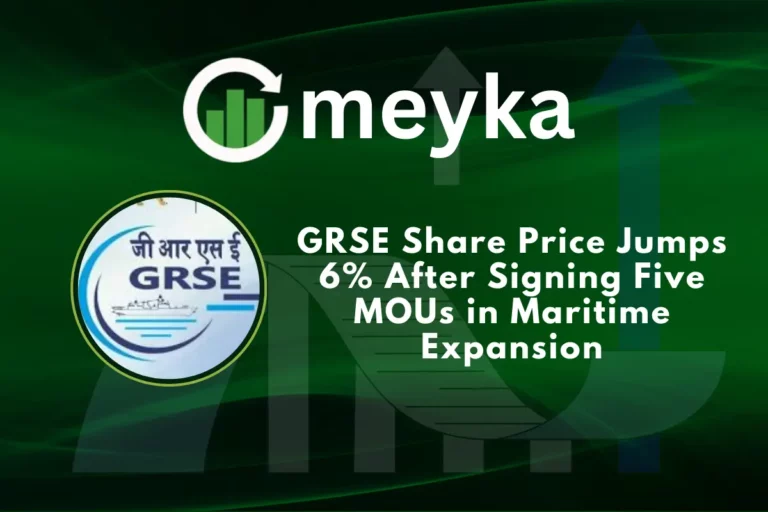Nidec Shares Drop Amid Escalating Accounting Scandal
Nidec, the world’s largest maker of small motors, is facing a fresh wave of investor anxiety. Nidec Shares slid after the company disclosed new suspected accounting problems uncovered in an external probe. The stock sank on news that the issues are broader than first reported and could draw regulatory scrutiny.
Nidec Shares plunge on accounting scandal
The sell-off began after Nidec filed a delayed financial report that revealed more suspected improper bookkeeping across units. The company said its external review found systemic accounting issues, including possible underreported duties and incomplete export paperwork in some overseas units. Markets reacted quickly as investors digested the widening probe.
How big was the move?
On the first trading day after the announcement, Nidec Shares fell sharply in early trade, dropping as much as about 4.8% before recouping some losses. The slide stoked fears that the company’s reputation with regulators and shareholders may be damaged.
Why is this happening?
An external probe expanded after initial findings. New suspected irregularities were disclosed in a delayed report, and investors fear further surprises and regulatory action.
Nidec Shares and the impact on investor trust
Trust is central to any public company. When accounting problems widen, that trust can evaporate fast. Nidec’s disclosures have left many investors uneasy about the accuracy of past reports and the firmness of internal controls.
The Tokyo market responds harshly to such doubts, especially when delisting is even whispered as a possible outcome.
What did the company admit?
Nidec said the probe, launched earlier this month after initial findings, uncovered further suspected bookkeeping problems. The company’s statement noted issues in its car inverter business and at a Swiss unit, among other points that raised compliance questions. That forced a late submission of financial data, which in turn triggered market concern.
Does this mean Nidec could be delisted?
Regulators could review the firm for serious breaches. The company now faces heightened scrutiny and the risk of disciplinary action, but delisting would be an extreme step and would follow formal regulatory review. Markets are pricing in the risk, which is why Nidec Shares have weakened.
Nidec Shares: governance, compliance, and corporate culture
Internal controls and corporate governance are under the microscope. Analysts say the story points to deeper management and oversight issues when multiple units show irregularities. For global investors, a pattern of bookkeeping problems suggests the need for major root-cause fixes, not just quick accounting adjustments.
Why does governance matter so much?
Good governance assures investors that accounts are reliable. When that assurance erodes, investors demand a higher risk premium or exit the stock. That push can cause sharp price moves and higher borrowing costs, outcomes Nidec will want to avoid.
Market and analyst reactions to Nidec Shares
Financial outlets and market commentators noted the drop and the widening probe. Bloomberg and Japan Times covered the story’s key facts and market impact, and smaller outlets echoed the same concerns about investor trust and regulatory review. A post on X highlighted the speed of the market reaction and the heightened fear among traders watching Tokyo-listed industrials.
How are analysts responding?
Analysts have turned cautious. Some advised waiting for clearer audit outcomes and management actions before reassessing the stock. Others emphasized the potential damage to shareholder trust and the need for transparent remediation plans. The immediate reaction in the market signals that many investors prefer to see concrete fixes first.
What should current shareholders do?
Review your risk tolerance and consider waiting for the company’s full remediation plan and audit confirmation. For long-term investors, the right move depends on confidence in management’s ability to fix the issues and rebuild controls.
How does this compare with past corporate scandals in Japan
Japan has seen several high-profile accounting scandals in past decades that eroded investor confidence and pushed firms into restructuring or sanctions. Market reaction to such problems is often swift and severe.
Nidec’s situation echoes earlier cases where delayed disclosure and repeated irregularities produced deep reputational damage. The country’s regulators and exchanges tend to respond firmly to preserve market integrity.
Context for global investors
For overseas investors, Japanese corporate scandals serve as reminders to watch governance closely. The risk of regulatory action, tighter oversight, or even changes to listing status adds a layer of geopolitical and governance risk to investment decisions in Tokyo-listed names.
Nidec Shares: the road ahead
Nidec must act fast to regain trust. Key steps include publishing full investigation findings, strengthening internal controls, engaging independent auditors, and communicating a clear remediation timeline.
Markets will watch any signs of concrete progress. If the company moves decisively, it can stabilize Nidec Shares over time; if it stalls, investor losses could deepen.
What will regulators likely demand?
Regulators typically expect audited fixes, disclosure of the full scope of errors, executive accountability where appropriate, and systems changes to prevent recurrence. Those demands take time and cost money, both of which influence market sentiment and share price recovery prospects.
Can Nidec recover?
Short answer: Yes, recovery is possible, but it will require swift, transparent work to repair governance and prove financial accuracy. Success depends on the depth of the problems and how convincingly management addresses them. Markets reward clear, credible fixes; they punish opacity.
Conclusion
Nidec Shares are down because investors fear that accounting irregularities are larger and more systemic than first reported. The company faces a test of governance, audit transparency, and regulatory scrutiny. The analyst can check the live updates on the stock with the best AI stock market research tool.
For shareholders and global investors, the coming weeks will be critical: Nidec must disclose the full scope of the problems and show concrete steps to fix them. If the firm acts decisively, it may restore confidence. If not, the damage to investor trust and market value could be long-lasting.
FAQ’S
Nidec Shares are falling because an external probe found wider accounting irregularities. Investors fear deeper problems and stricter regulatory action.
The probe revealed suspected improper bookkeeping in multiple units, including overseas operations, raising concerns about corporate governance.
Yes, Nidec Shares could face delisting if regulators confirm serious breaches. However, delisting would only follow a full investigation and review.
Nidec Shares dropped as much as 4.8% in early trade after the company’s delayed report disclosed broader accounting issues.
For investors, the drop signals higher risk and uncertainty. Market confidence in Nidec Shares will depend on how quickly the company fixes governance problems.
Yes, but recovery will require strong transparency, better internal controls, and clear communication with regulators and shareholders.
Disclaimer
The above information is based on current market data, which is subject to change, and does not constitute financial advice. Always do your research.






